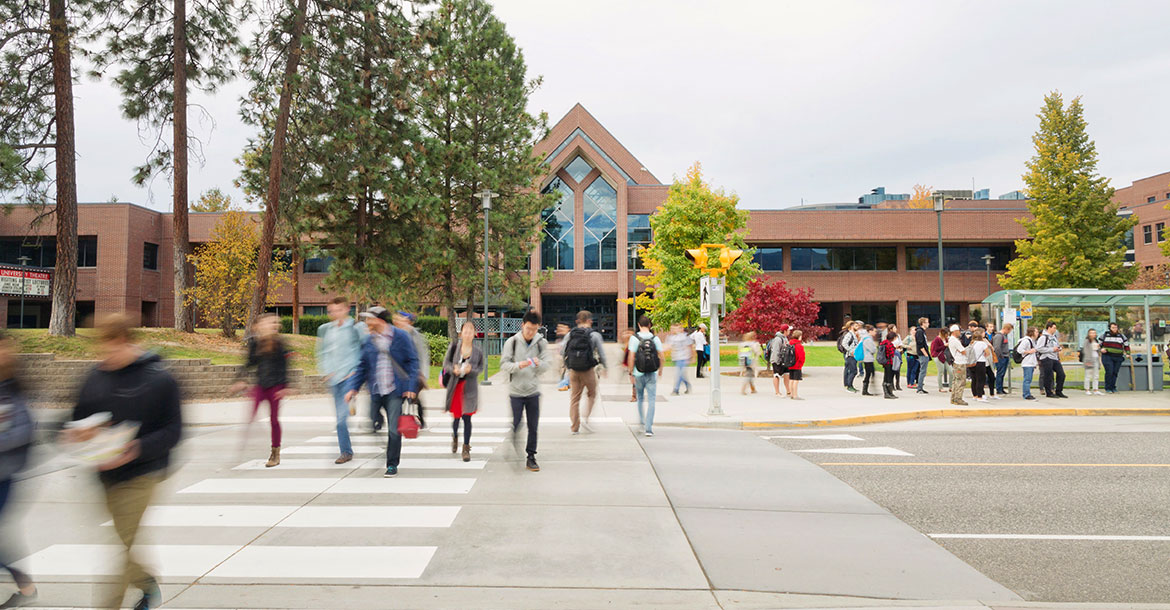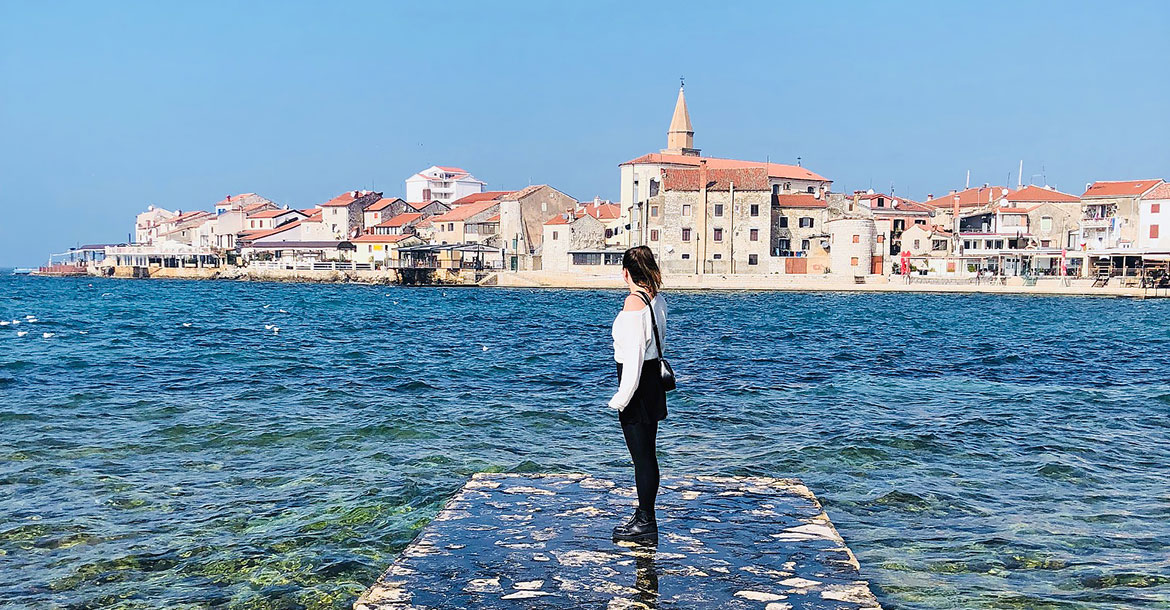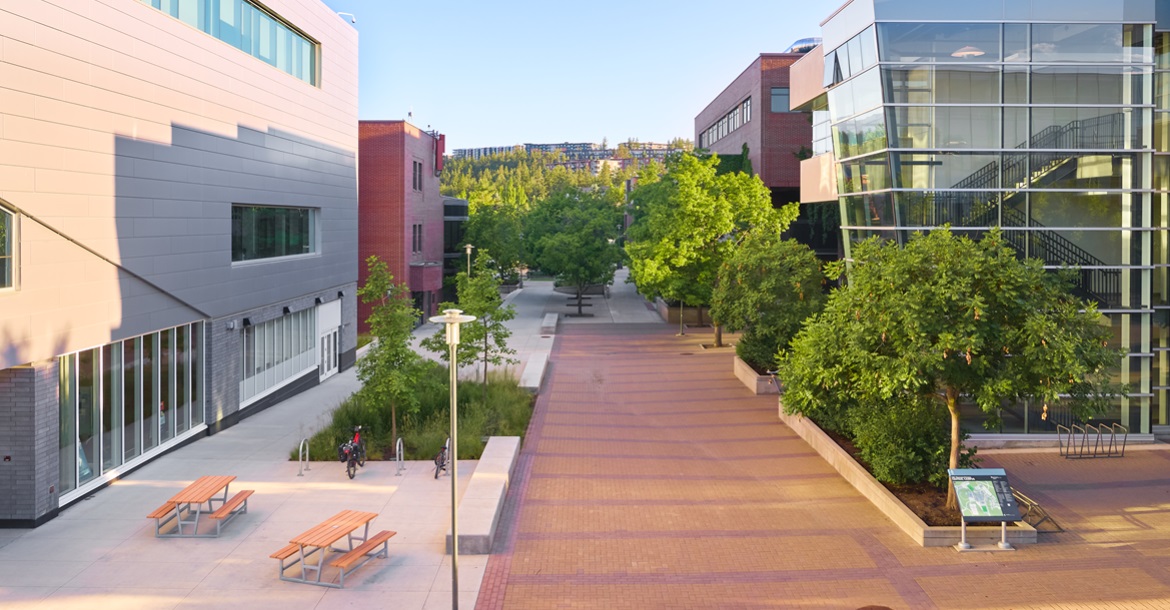Outbound exchange program
Go Global is a post-secondary academic exchange program. This program allows students to take one or more courses at specific partner institutions around the world. Courses completed on exchange are counted towards your degree requirements at UBC.
Interested in learning more about Go Global? We encourage you to watch our video series, Go Global 101, and to reach out to a Go Global Advisor to find out more!
Go Global services are available in-person, by e-mail, or on Zoom.
Applications to Go Global are now open. Please review the list of Round 2 schools below. The deadline to apply for Round 2 is May 7, 2024 @ 11:59pm.
Additional Information
Go Global Partner Schools
Go Global has over 180 partner universities in 50 countries worldwide for term-based exchange options. For the most current information on partner universities, refer to the link below. Note that this link will take you to our Vancouver website as they host the content.
See the map below for a visual of where all of the partner schools available to UBC Okanagan students are located, and then find out more by searching for them on our Partner University School page.
The Go Global exchange program provides students with an opportunity to:
- Make the most of their UBC education
- Experience international issues and ideas in the real world
- Immerse in a new culture and get a fresh perspective
- Connect meaningfully with people in a host country as a student, not just as a tourist
- Challenge new environments, gain confidence, and strengthen life skills
- Take courses outside of what is available at UBC
Eligibility
Exchange opportunities are open to almost all faculties. There are a variety of eligibility requirements around grades, UBC credits completed, and academic standing. Art students are able to go in their second, third, or fourth year. Management, Science, and Human Kinetics students are able to go in their third and fourth year.
Students can take part in a summer experience at any point after having completed 30 UBC credits.
faculty-specific considerations
Each faculty has slightly different considerations to take into account in regards to Go Global. Some major have additional considerations, however the below lists will help with some basics.
- Very few restrictions for degrees in this faculty
- Although students from FASS can go abroad in their second year, it is not usually recommended to do so. Most degrees have 2nd year requirements which, if not obtained abroad, will delay degree progression (e.g. PSYO 270/271)
- In addition to Go Global, your program advisor may be able to suggest some strong exchange options for you
- Degree-specific considerations are important
- ex/ VISA has less flexibility than ENGL
- The best time to go abroad for Media Studies is 2nd semester of Third Year
- It is encouraged to reach out to academic advising or your program advisor/coordinator if you are uncertain on how to meet any of your degree requirements while abroad
- Best time to go abroad to avoid delays in degree completion, regardless of pursuing CIE/Exchange, is:
- For 4-year degree plans: second semester of 3rd year
- For 5-year degree plans: second semester of 4th year
- Students have two options for how to study abroad:
- Coordinated International Experience (CIE)
- Fewer exchange options (~18 partner schools)
- Generally unlimited space at each of the partner institutions
- Semester abroad counts as a co-op term
- Two-thirds of your courses should be ENGR-related
- General Exchange program
- Greater selection of exchange opportunities (~200 partner schools)
- Generally a larger selection of non-ENGR coursework available at partner institutions
- More flexibility available in the courses that you can take
- Coordinated International Experience (CIE)
- For CIE it is mandatory, and for Exchange it is highly encouraged, to work with an Academic Advisor during course planning and articulations
- Human Kinetics
- Degree is well suited for exchange at any point in third/fourth year
- If wanting to take HMKN coursework while abroad, it is recommended to go to a partner institution in Australia, New Zealand, the United States, or the United Kingdom
- If wanting to take elective coursework, many more options are available – it is encouraged to reach out to our office to discuss how this might work with your degree
- Nursing
- Limited ability to take part in Go Global programming
- 3cr of elective coursework which could be completed during any summer
- Global Health Practicum in 4th year
Nursing Go Global Guide
- Limited ability to take part in Go Global programming
- Master’s of Social Work
- Generally not able to go on exchange. Please speak to your supervisor to determine whether exchange is plausible for your degree
- Students can go abroad in summer at any time, but cannot earn upper-level MGMT credit in the summer between first and second year (e.g. only elective credits can be earned in the first summer session)
- The earliest that students can go abroad in the Winter Session (Sept-Apr) is the first semester of third year
- MGMT 360 is a unique course to UBCO and cannot be taken abroad
- Students studying abroad during their fourth year need to ensure that they earn credit for MGMT 490 either at UBCO or while abroad
- Some degrees work well to go abroad for one or two semesters, while others will require a bit more planning
- Specific degree requirements (e.g. specific 21-credits of upper-level BIOL for ZOOL Majors) can be satisfied through unassigned courses (BIOL 3rd) with approval from the degree program advisor
- In addition to conversations with Go Global and Academic Advising, it will be important for you to consult your program advisor, especially for degrees with a high level of course-specific degree requirements
- Computer Science
- Students need to be at UBCO for a full year to complete COSC 499. This course may be available during the summer session.
Additional Considerations
Having trouble narrowing down which schools to apply to? Try reviewing some student reports! Learn about other students personal accounts of their experience at partner schools to see if they are a good fit for you.
Goals of your exchange
Students on exchange can study at hundreds of universities around the world. While the options are seemingly endless, we can help you ensure that you select a university that fits your needs best, both academic and personal.
The following questions relate to key criteria for exchanges and can help guide you in choosing the right university for a great Go Global experience. It is recommend that you work through these questions before you conduct a partner university search.
Although it might seem scary at first, you can learn a lot about yourself by pushing beyond your comfort zone. This is a chance for you to get lost and then find yourself in an entirely new setting. Are you looking for a new culture or new courses? Below are some questions you should consider when trying to decide on your choices for your partner universities.
Country/region
- Is there a country or area of the world that has always sparked your interest?
Size of city
- Do you want to be in a big city, a university town, or a small town?
Size of campus
- Does campus size or style matter?
- Do you want to experience a campus similar to or different from UBC’s Okanagan campus?
Costs
- What is the cost of living? Does it fit your budget?
- Going on exchange is not as expensive as you may think. For more information on financing your exchange, check out the money matters section.
Personal benefits
- What are my personal goals for exchange?
- What do I want to get out of the experience?
What learning outcomes do you want to achieve while away? Studying abroad is an excellent opportunity to challenge yourself academically.
Length of stay
- Do you want to go for Term 1, Term 2, both terms, a split-year (Term 2 then Term 1), or a summer?
- How does the partner university’s terms compare to UBC’s terms? If you would like to go on exchange in Term 1 and return to UBC for Term 2, check the term dates of your partner university. Some universities’ fall terms end in January (after Term 2 has begun at UBC).
Language of instruction
- Do you want to be in an English-speaking country? You can often study in English in non English-speaking countries.
Language training
- Do you want to study another language? You have many options for this, depending on your language proficiency (PDF). For example, you can study French in France or study in Spanish in Spain.
Academic benefits
- What are your academic goals for exchange?
- Would studying in a specific location benefit your degree? You could practice Japanese in Japan, study earth science in Iceland, or see original Renaissance art in-person.
- Would studying at a specific university benefit your degree? Some of our partner universities are agricultural universities or social science institutions, while others offer a broad range of programs.
See how courses transfer back by looking through the course equivalency database.
As part of our agreement with partner universities, students receive UBC credit for all academic courses taken abroad.
We suggest you keep the following in mind when you search for courses on partner university websites.
Unique course offerings
- Partner universities will often have courses that are not offered by UBC.
Courses in English
- Many universities offer courses in English. For example, English is the language of instruction at Koç University in Turkey, and universities in Scandinavia, Mexico, and Korea offer a wide selection of courses in English.
Courses in other languages
- If you want to take courses in a foreign language (excluding language courses), you will have to meet language proficiency requirements.
- Download and fill out the language proficiency assessment form (PDF) if you are planning to take courses in a foreign language at an exchange university.
Different academic structures
- Faculties and departments at our partners may be structured differently than at UBC. For example, at UBC we have separate faculties for Forestry and Land and Food Systems, but at the University of Copenhagen, they are departments within the university’s Faculty of Life Sciences.
University lingo
- The terminology surrounding academic programs may be different than UBC’s. For example, in the UK courses are modules and majors are courses. In addition, credit systems can vary.
Course restrictions
- Some subject areas may not be open to exchange students at your partner university, or there may be a limit to how many courses you can take in a particular department. To find out if such restrictions exist at your partner university, refer to the partner university’s exchange website.
Go Global Myth-Busters
Have you been wanting to apply for Go Global but something is holding you back? Perhaps you've heard one of the infamous "myths" that make you think Go Global isn't for you. Well, read on and see for yourself what we have to say about these supposed "myths" as our Myth-Busters seek to provide more clarity for you!
Myth: Go Global will delay my graduation.
Students will receive UBC credit for all successfully completed academic courses taken on exchange.
Non-academic courses such as badminton or tea ceremony, or seminar courses without assessment, will not earn UBC credit.
Therefore, taking a full course load while on exchange will be the same as taking a full course load here at UBC. How your credits transfer back to your degree can vary and is dependent on how they are articulated.
Speak to your Go Global advisor to discuss how Go Global can fit into your major!

Myth: You can do co-op or Go Global, but not both
Planning your Co-op terms along with an exchange program will require some careful planning on your part, but you can definitely do it. Go Global and Co-op advisors are happy to help figure out a plan for you to make both Go Global and Co-op work for you.
Note that Term 1 exchanges generally work best when balancing Go Global and Co-op. The reason for this is that Term 1 at most of our partner schools does not tend to conflict with other terms (e.g. Summer or Term 2), whereas Term 2 often conflicts with Summer dates.
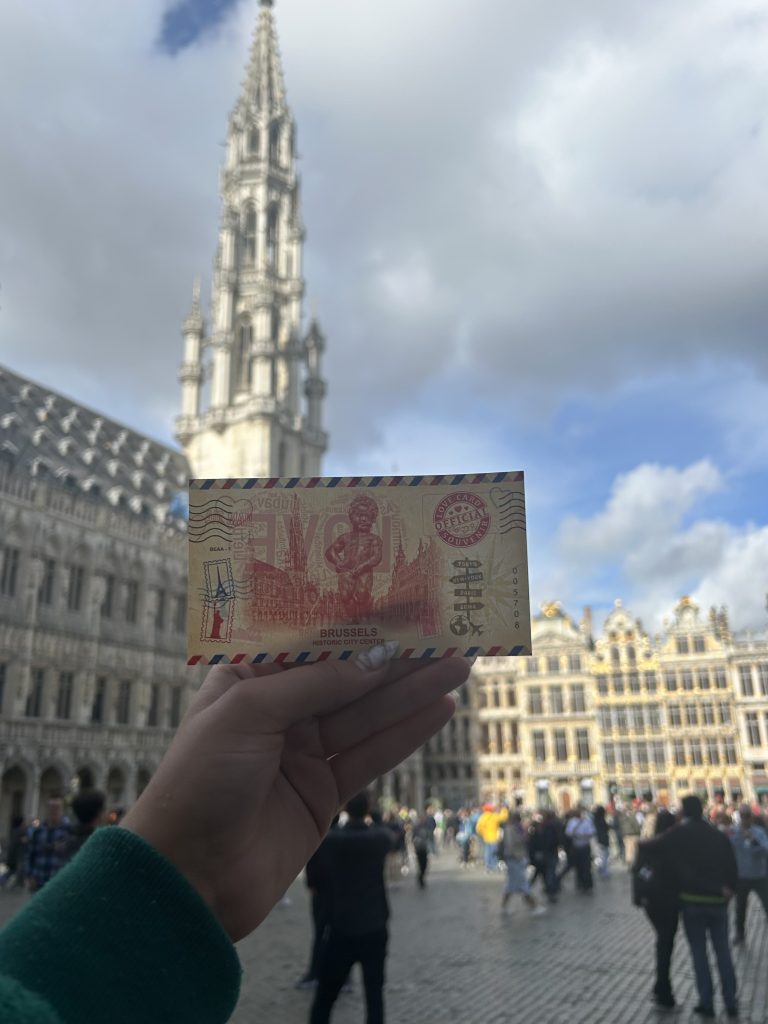
Myth: International students cannot go on Go Global
Any UBC student is eligible to take part in Go Global so long as they meet our eligibility requirements. Even international students at UBC will benefit from going abroad (again) to gain knowledge of a new culture.
Note that some partner schools or the country they reside in require current proof of English competency (e.g. TOEFL) as part of their acceptance or visa process, while other destinations will recognize your study at UBC as being sufficient for their English language requirements. Please research this requirement if English is not your primary language.
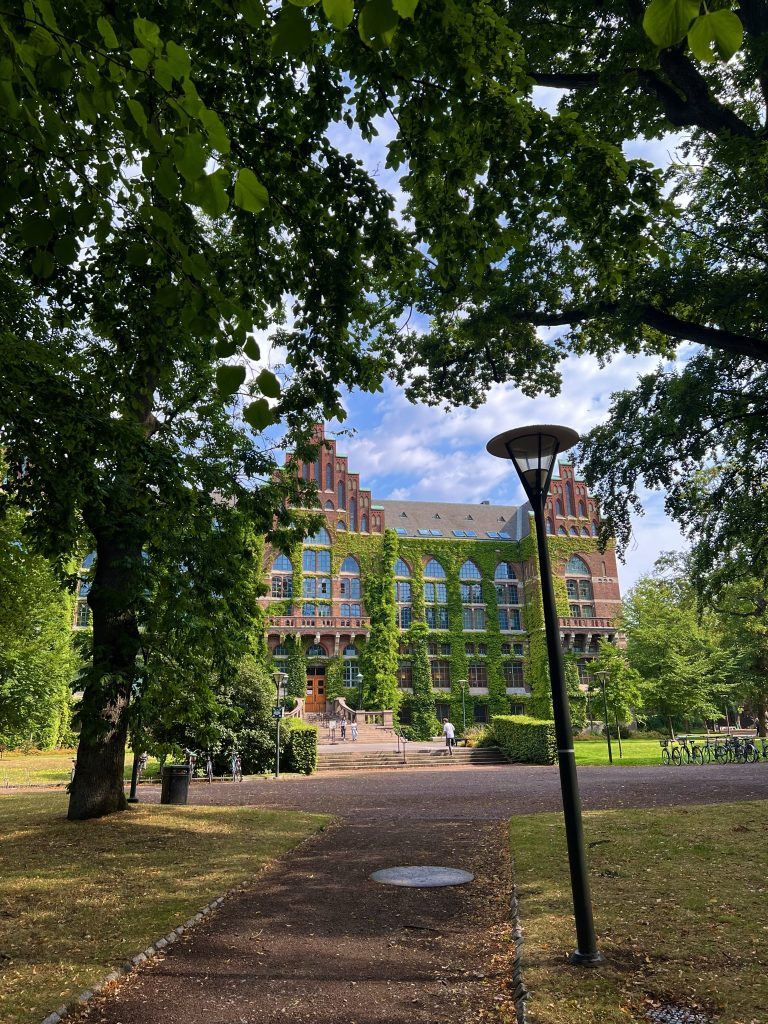
AWARDS & SCHOLARSHIPS
Over $1 million in scholarships and awards will be awarded this year to UBC students participating in international learning programs through Go Global.
While you’re learning abroad, you remain a UBC student and are eligible for UBC awards, scholarships, and financial assistance. This includes student loans (exchange students only), affiliation scholarships, and faculty- or department-specific awards.


